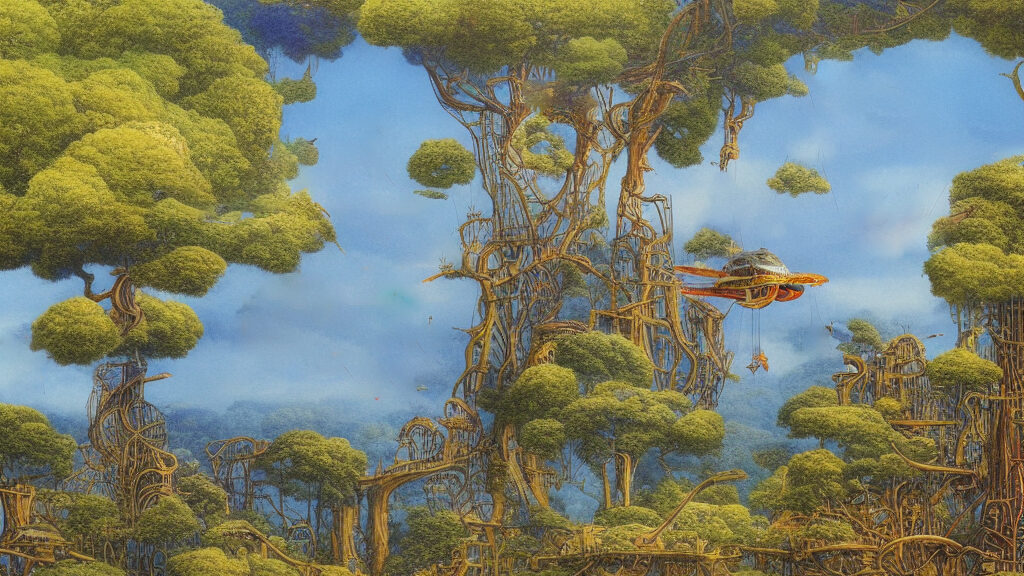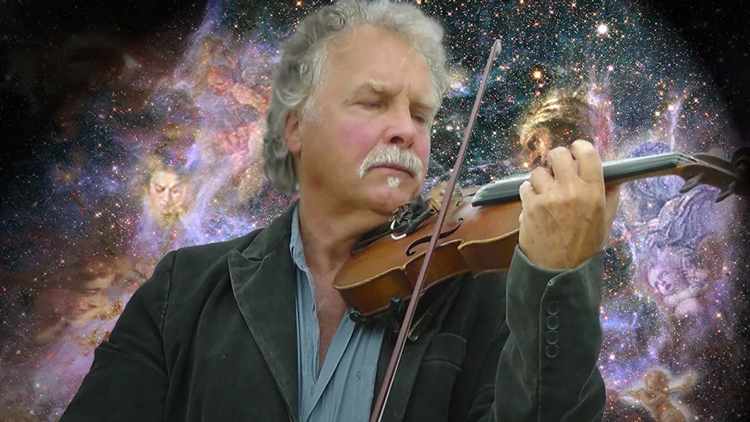Richard Darryl Way was born December 17, 1948, in Taunton, Somerset, England. He is an English progressive rock and classical musician who was a founding member of Curved Air. He co-wrote their progressive rock seminal albums from 1970 to 1976. Way is best known as a violinist, although he also plays keyboards.
He began his musical training at Dartington College of Arts, and later studied at the Royal College of Music. When he met Francis Monkman, they formed the band Sisyphus, which evolved into Curved Air. Originally formed in 1969, Curved Air was a groundbreaking progressive rock band renowned for their showmanship. Each member pushed the boundaries of possibilities for rock music performance. Darryl Way with his flamboyant virtuoso exploration of electric violin, Francis Monkman with his brilliant innovative sound manipulation using the VCS3 synthesizer, keyboards and fiery intricate guitar playing and Florian’s expressive approach to rock drumming. Vocalist Sonja Kristina won the hearts of a generation of music lovers and was voted top British Female Vocalist of the 70s.
Darryl wrote the music for the Top 10 hit (reached #4) “Back Street Luv” and was a major contributor to the 3 Curved Air albums that made the Top 20. With Curved Air, he toured extensively, performing in practically every major city in both America and Europe. Before becoming headliners themselves, Curved Air toured with Black Sabbath in the UK and in the USA they toured with Deep Purple, Jethro Tull and Emerson, Lake & Palmer.
After three albums and a hit single with Curved Air, Darryl Way left in 1972 and formed the band Darryl Way’s Wolf, which also recorded three albums before splitting. His next band, Stark Naked & the Car Thieves, went on hiatus when Curved Air reformed in late 1974. After their Curved Air Live album, Curved Air split, only to be reformed by Way primarily using members of Stark Naked & the Car Thieves. He recorded two studio albums with this new incarnation of the group before leaving again.
He played on two tracks on Jethro Tull’s 1978 album Heavy Horses. Furthermore, he then went on to release several solo albums, including Concerto for Electric Violin, which premiered on the South Bank Show with the Royal Philharmonia Orchestra in 1978. There was a subsequent performance at Leeds Town Hall in the early 1980s, which was broadcast live on BBC Radio Leeds.
Darryl’s collaborations include working with Tim Rice, Sting, and Gary Brooker (Procol Harum). In classical genres he has orchestrated Stewart Copeland’s ballet “King Lear” for the San Francisco Ballet, and Stewart’s opera “The Holy Blood and Crescent Moon”, premiered by the Cleveland Opera in the US. In 1996, Darryl’s own opera “The Master and Margarita” was premiered at The Place Theatre in London. Alongside these projects, Darryl has also worked as a film and television composer.
Curved Air reunited briefly in 1990 and a live recording of their reunion concert was released in 2000.
In November 1996, his own opera, The Russian Opera, was premiered at The Place Theatre in London, and his songwriting work includes music settings to lyrics by Steven Berkoff.
In 2008, he took part in a series of Curved Air reunion concerts.
As a violinist, Darryl has led the London-based Electric Symphony Orchestra for concerts at the Royal Festival Hall, and led and recorded with The Elektra Ensemble, performing classical and contemporary music. As a session musician, he has recorded with Jethro Tull, Sky and Marrianne Faithful, as well as several film scores with the National Philharmonic Orchestra. Recent work includes being musical director for the soprano Emma Shapplin, for a series of televised UNHCR concerts at the Parthenon in Athens. Recent compositions include a Symphonic Choral work entitled “Siren’s Rock”, premiered at the Plymouth Guildhall with the South West Sinfonietta, Opera South West, Naomi Harvey (WNO) soprano and Stephen Crook, tenor.
In 2013, Darryl Way released his first solo album in 20 years. Ultra Violins features Darryl’s own interpretations of various well-known classical pieces, as well as a re-recording of Curved Air’s classic hit “Vivaldi”. Said Darryl, “The motivating force behind creating ‘Ultra Violins’ was to introduce some new material for solo violin that came from the vocal repertoire and the world of orchestral music, rather than music specifically for solo violin.”
Along with his stunning adaptations of orchestral pieces such as “Scheherezade” and “Farandole”, is a new composition by Darryl titled “Tarrantelle”; a piece inspired by a performance by Maxim Vengerov, the Russian violinist. Also included on this album is Darryl’s video for “Farondole”. He explained, “Ever since 2002 I’ve been making videos for various projects, including my classical crossover band Verisma, which features the magnificent tenor voice of my co-collaborator, Stephen Crook. We were lucky enough to get our first video broadcast on Classic FM TV, and from then on we had a further four videos broadcast on this TV channel. So to promote the digital release of ‘Ultra Violins’ I decided to make a video of it.”
Of the new version of ‘Vivaldi’ included on the album, says Darryl, “It is a piece in two halves, as was the original Curved Air showstopper. The first half has been arranged in typically baroque style, or in the style of Vivaldi himself if you like. After a short transition passage the piece arrives in the 20th century, as the introductory melody is now played on electric violin, emulating an electric guitar, with bends and slides. This leads into the main section of the piece which is now played on electric violin put through a distortion unit, with heavy guitar chords as an accompaniment, along with counter melodies also played on electric violin. This section sets out to capture the excitement of the original, which always left the audience wanting for more at the end of a Curved Air set.”
After nearly half a century since the inception of his classic rock anthem Vivaldi, Way expertly arranged and recorded the entirety of Vivaldi’s magnum opus, The Four Seasons, and imbuing it with a distinct ‘rock’ flavor. This remarkable musical feat culminated in the release of the album, titled Vivaldi’s Four Seasons in Rock, on May 4th, 2018, courtesy of Cherry Red Records.
Way said of the project: “You cannot improve upon perfection, which the Four Seasons undoubtedly is, but I felt that the Four Seasons, a piece that has been a seminal influence in my life, would be fertile ground for a reinterpretation. Having said that, I have not changed any of the notes, except in some of the slow movements, where it is generally accepted that the written notes can be embellished. I have just added to the mix, rock instrumentation and rhythms, synth textures and in the slow movements, some chill out beats.”
He added: “I already had a good idea that a rock arrangement could work with Vivaldi’s music, from my work on the Curved Air track ‘Vivaldi’. The challenge was, to maintain Vivaldi’s original concept of the piece and tell the same story. Whether I have risen to that challenge is not for me to say, but if you were a fan of my Curved Air track ‘Vivaldi’, there’s a good chance you’re going to like this as well.”
Destinations (2020) featured ten new rock instrumentals, with a variety of influences and sound effects enriching the style and delivery of the pieces. Darryl Way said of this project “’Destinations’ a collection of 10 pieces that set out to conjure up images of far off and exotic locations like Antigua, or imagined settings like Metropolis or Mystic Mountains. Like my previous album ‘Vivaldi’s Four Seasons in Rock’, ‘Destinations’ could be described as program music, music that evokes atmospheres and impressions.”
Mostly set in the rock genre, Darryl introduced himself as a guitarist on this album, as well as performing in his more familiar role as a violinist.

